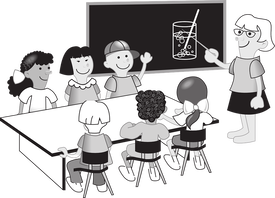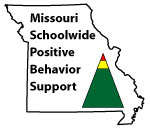
- Don't let students off the hook. The tendency when receiving a wrong response from a student is to call on someone else to give the right answer. This usually comes in the form of silence from the first student called, during which the teacher can't stand it any further and says something to the effect of, "Who wants to help [first student]?" There may be a time when the first student will melt down before your eyes in class, but in most cases, my suggestion is to stick with him. I call it "reeling him in," and it simply means that I'm going to take the time to coach him through to the next step of the problem and probably to completion. I could have celebrated his correct answer if he had given me one right away, but now I can celebrate the hard work and suffering that he went through to finally achieve completion. Either way, this kid's going to get some applause from the class (By the way, celebrations are embedded callbacks, but we'll get to that in a later article.).
- Remember wait time. Prolonged silence can difficult, but it can also be rewarding. We tend to call on the kid with the longest arm or the fastest hand in the air when we should actually be waiting for more hands in the air. Don't just wait for the first hand, but wait for multiple hands before calling on someone for the answer to a question in class. I hear teachers exclude one student verbally and publicly by telling the class they don't want to call on a particular student, because that student has answered too many times already (and they want to give others a chance). Well, wait time is how you can give others a chance without upsetting the first kid. The more hands you wait for, the more choices you have in whom you can call. And that's not to mention the benefits to the others to have the time to process the question. When you call on answerers too quickly, you're telling the others that they can stop thinking. Is that something you want? Everybody benefits by an extra five to seven seconds.
- Spread out your questions. Likewise, most of us recognize that we don't want to call on the smart kid every time. She has the answer and you know it. And yes, you do want to give others a chance. The question on the table, however, is, What about the kids who don't raise their hands? When do they get called on? You have to know your students for this to be its most effective, but you can - and should - call on those who don't raise their hands. They can no longer just sit and coast while the most ambitious students get all of the attention. Unless they have a special need due to anxiety or other possible diagnoses, they need to know that you're perfectly capable of calling on them at any time, and even then, they need to understand that you're not going to let them off the hook. Still, to your surprise, some of them will have the correct answer right away.






































